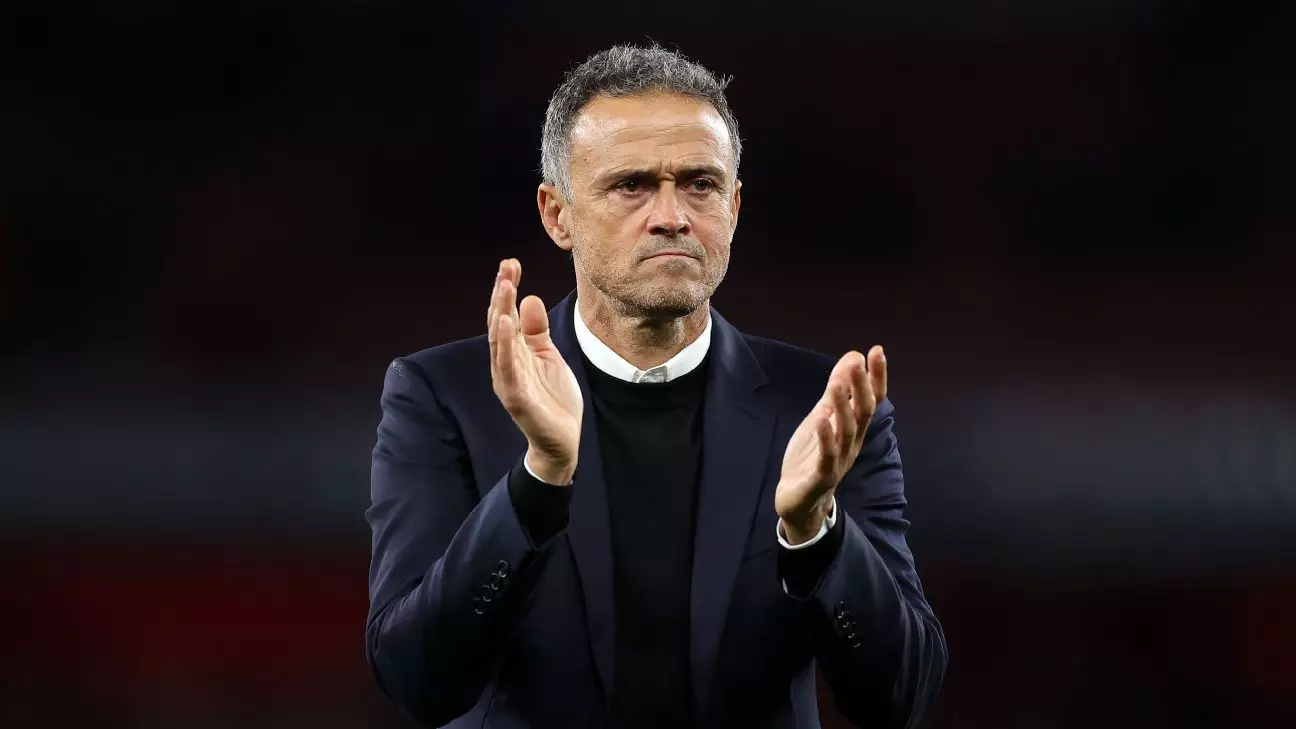In the high-stakes world of football management, few decisions are as consequential as those involving player discipline. Luis Enrique, the manager of Paris Saint-Germain (PSG), recently faced such a dilemma when he chose to bench Ousmane Dembélé for a crucial Champions League match against Arsenal. This choice, while rooted in maintaining team discipline, raised eyebrows—primarily because it culminated in PSG’s first loss of the season, a 2-0 setback that will likely linger in the minds of players and fans alike.
The Context of Ousmane Dembélé’s Absence
Dembélé, a player who has recently stepped into the spotlight following Kylian Mbappé’s departure, had been performing substantially for the team. With four goals and four assists to his name at the start of the season, he became a focal point of PSG’s attacking strategy. However, ENrique’s decision to drop him wasn’t without merit. Reports indicated that the situation arose from a conflict between the player and manager, ultimately culminating in a disciplinary measure. Enrique’s stance was clear: maintaining team standards took precedence over individual performances.
Luis Enrique articulated his managerial philosophy in a recent news conference, emphasizing his dual approach of being tough when required while also allowing flexibility when appropriate. “Every player has a series of obligations to meet,” he asserted, implying that discipline is equally as important as skill on the pitch. The separation of personal accountability and team success is crucial in football, where the interplay between individual talents and collective efforts can often dictate outcomes. His stance raises the question: how should coaches balance performance with professionalism?
The ramifications of Enrique’s choice did not only affect Dembélé but also rippled through the entire squad. Following the loss to Arsenal, Enrique noted the importance of returning to league action with a refreshed mindset. Such decisions can alter a team’s morale and unity, where trust in the coaching staff is paramount. If players feel that disciplinary actions are fair and justified, it can reinforce a culture of accountability, thereby invigorating the squad’s spirit. Conversely, if the actions are perceived as arbitrary, it could lead to discord among team members.
Assessing the State of PSG
Despite the setback, PSG remains a formidable force in Ligue 1, sitting atop the league with an unbeaten record. This is a testament to their overall strength and depth, despite the obvious void left by Mbappé. The team’s current standing underlines a fundamental reality of modern football: even when faced with a difficult situation, resilience can prevail. Enrique has expressed confidence in his players, stating their imperfection only fuels the chase for continuous improvement.
Looking Ahead: Analysis of Upcoming Challenges
In their upcoming match against Nice, who currently sit ninth under the new leadership of coach Franck Haise, Enrique foresees challenges due to Nice’s robust defensive structure. Notably, they have conceded merely six goals this season, making them a tough opponent. The duality in playing against a highly organized team poses a tactical headache for Enrique, who must succeed on multiple fronts: not only delivering a cohesive game plan but also maintaining squad morale after such decisions.
In the grand scheme of football, the case surrounding Dembélé serves as a microcosm of larger philosophical debates around discipline, individualism, and the essence of teamwork. Every coach faces such crossroads, and their decisions can define seasons. As Luis Enrique continues to navigate the complexities of managing stars and expectations at PSG, all eyes will be on how he balances these aspects moving forward—both for his sake and that of the team he leads.
The world of professional football is rife with challenges wherein management decisions are constantly scrutinized. In Luis Enrique’s case, the decision to drop Dembélé may have immediate repercussions, yet it also hails the larger ethos of structure and accountability within PSG. How this manifests in the future will undoubtedly be a narrative worth following—all under the unyielding spotlight of professional sports. In a landscape shaped by pressure and performance, maintaining harmony between discipline and talent remains the ultimate challenge for any successful manager.

